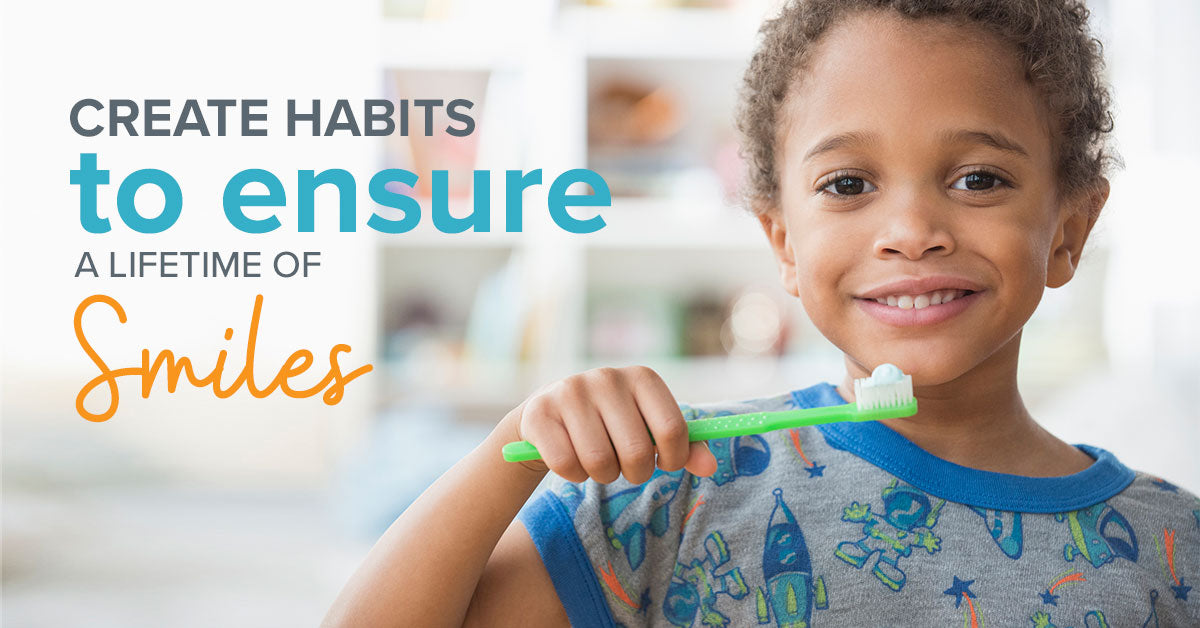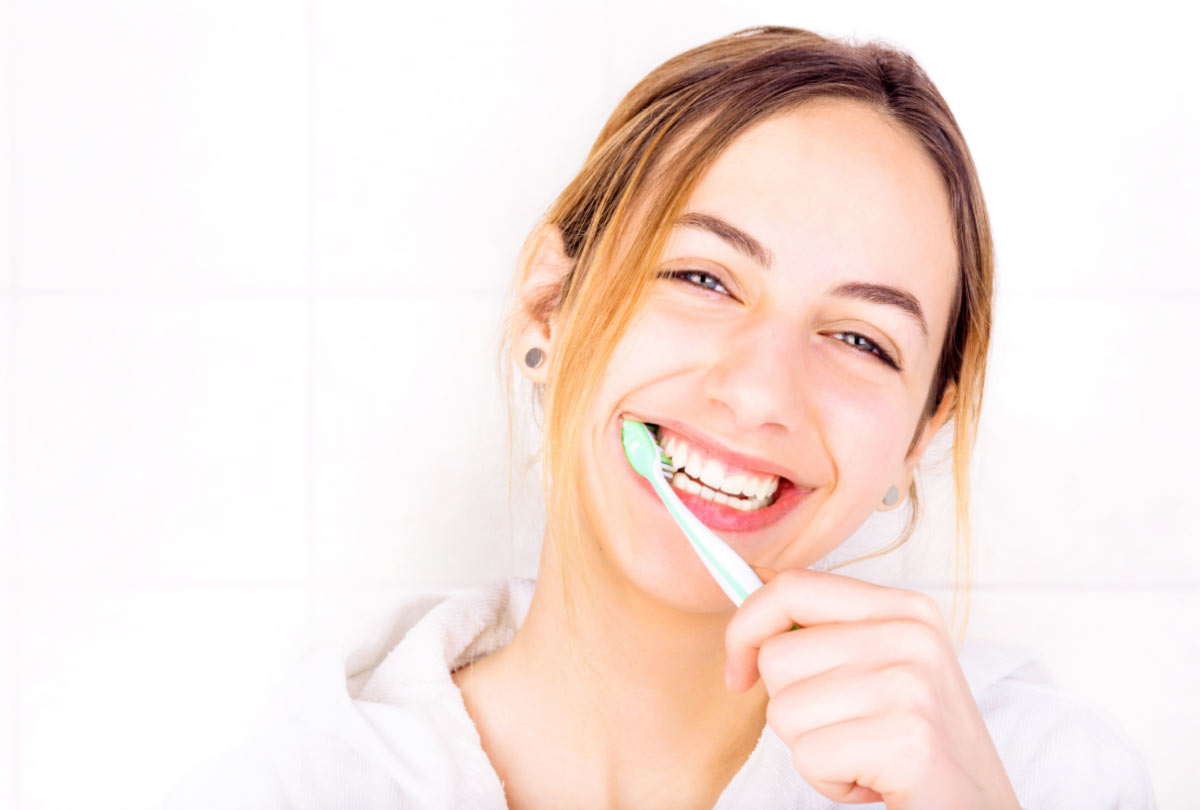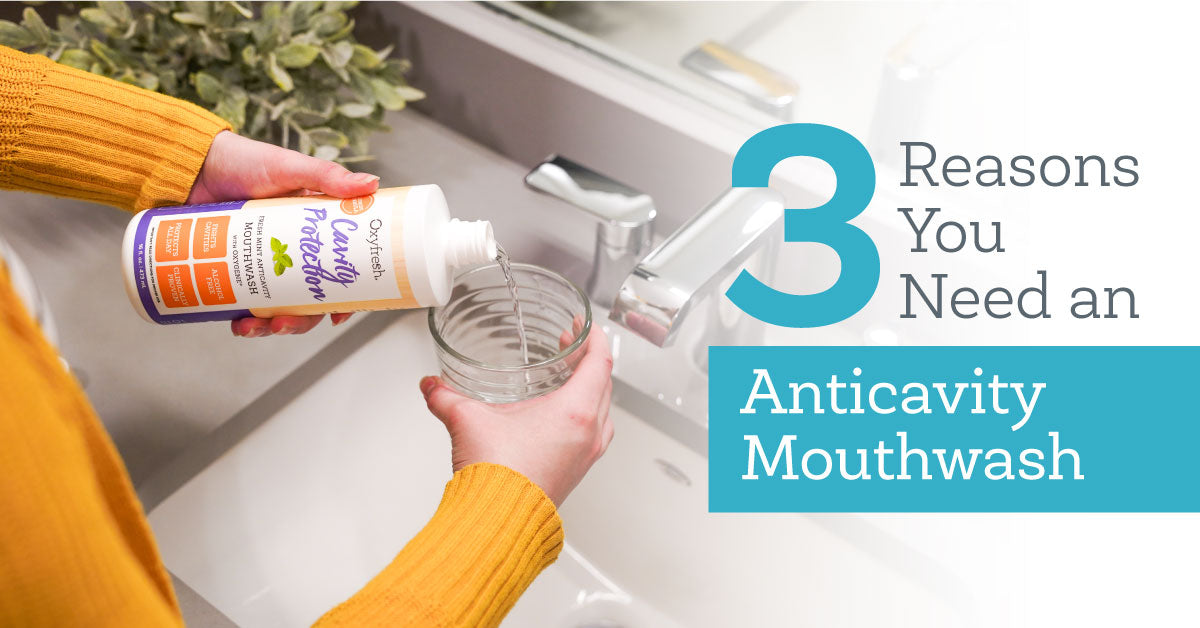Great habits last a lifetime, especially when established early. Children are like little sponges, eager to learn and learning by example. They learn from the world around them and the habits of others.
Dental care used to be about necessity only, but each generation since has learned a little more than the previous one, and now the focus is on prevention. Generations ago, people only saw a dentist for a problem, rather than learning how to prevent oral disorders.
Dental professionals often hear “they are only baby teeth,” which is true. However, baby teeth serve many purposes! They act as a guide and hold the space for permanent teeth to erupt between the ages of 5 and 13.
Additionally, teeth aid in speech development and can impact the ability to learn in school. A report from Delta Dental finds that nearly 8.6 million children ages 6–12 have missed school due to a dental problem.
Baby teeth also provide practice to teach children how to care for their oral health and establish good habits. Did you know that children, on average, need a parent or caregiver to help brush their teeth effectively until approximately age seven when their fine-motor skills are developed? Helping parents see the value of preserving baby teeth is a valuable role of dental professionals.
There is more to good dental care than just brushing. Using a fluoride toothpaste twice daily for two minutes is recommended. Teach children to brush the cheek-side and tongue-side of their teeth, in addition to the tops of the teeth, while setting a timer for two minutes. This can help teach thoroughness for years to come. Don’t forget the tongue – this is where the majority of the bacteria in the mouth live!
Great brushing habits is just the beginning. Cleaning in-between the teeth where the toothbrush can’t reach is key. This is the point where most cavities begin to form, which are only detected with dental x-rays, while still small and treatable.
The interproximal areas are the most critical and often the hardest to clean. Use of a mild mint Cavity Protection Fluoride paste and rinse is key to reaching the must susceptible areas. And, of course, floss is considered the gold standard; however floss sticks, oral irrigators and interdental brushes are equally effective.
Finishing up a healthy oral routine includes using a mouthwash that does more than just mask odor. A chlorine dioxide rinse, with or without fluoride, from Oxyfresh’s innovative dental line works to neutralize the bad bacteria in the mouth. Choices include a very mild Cavity Protection Mint, Fresh Breath Lemon Mint or Unflavored mouthwash to ensure there is a flavor or non-flavor children will use. They effectively reach the areas that brushing may have missed, along with the fissures on the tongue, delivering fresh breath.
Make your oral care routine a teachable moment and a family routine. Teach the importance and benefits of a complete oral hygiene routine. Creating habits to ensure a lifetime of smiles begins at a young age, although it is never too late to learn!



